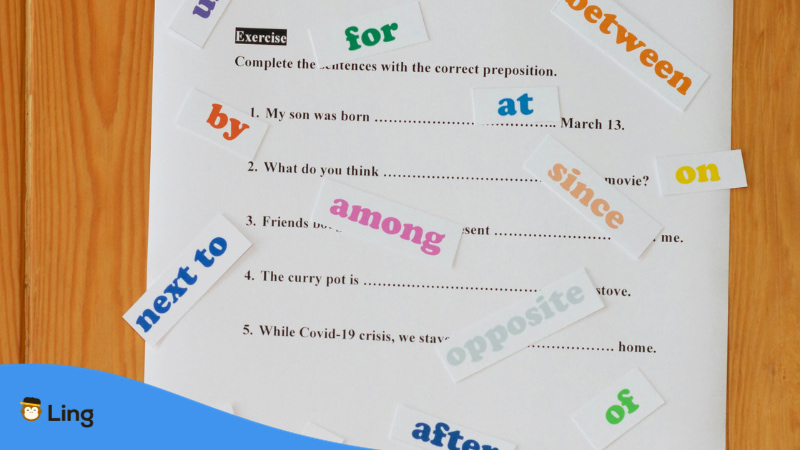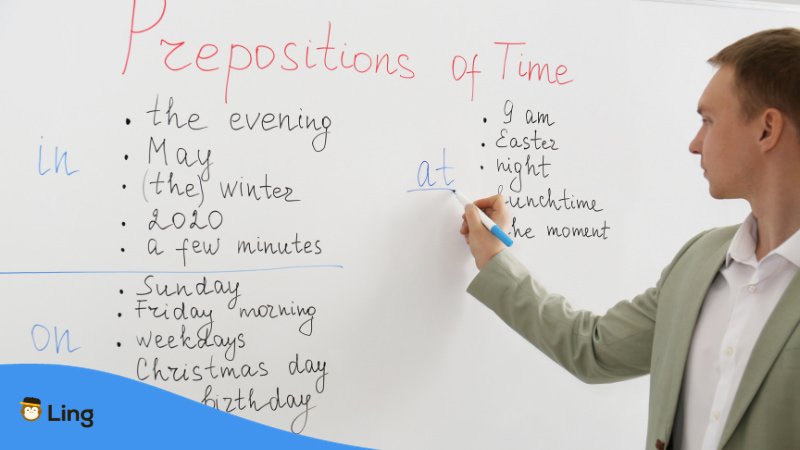Prepositions play a major role in sentence formation. It is important to pay attention to them when learning a new language, alongside Swahili nouns, verbs, adverbs, and adjectives. Prepositions show a correlation between two objects and sometimes give meaning to sentences. In the Swahili language, Swahili prepositions, or Kihusishi in Swahili, are important.
That is why we are going through the important Swahili prepositions you must know to be able to formulate correct sentences and become a fluent speaker. With many examples listed here, we can ensure that you’ll understand this topic instantly. Without further ado, let’s get started in learning Swahili.

A Quick Intro To Swahili Grammar
The Swahili grammar is a Bantu language spoken mainly in Eastern Africa. With approximately 200 million speakers, the Swahili language is spoken alongside French and English in Tanzania, Kenya, the Congo Republic, and other eastern African countries. The Swahili grammar follows the subject-verb-object order in Swahili sentence structure and has a rich array of agglutination words, noun classes, and tenses.
Ideally, prepositions are placed before the noun or the pronouns, whether demonstrative or any pronoun. However, when it comes to some prepositions of location, it is added as a suffix when there is a proper noun in the sentence.
What Is A Preposition?
We’ve established that prepositions are an essential part of a sentence, but what exactly are they? A preposition is a word or group used before a noun or pronoun to show direction, place, location, or spatial relationship. In layman’s language, a preposition is simply a word that links words together or shows a relationship between both terms.
- The cat is under the table
The English preposition ‘under‘ shows the relationship between the cat and the table. Another quick example is My phone is in the car. You will realize that the phone and the car are linked together by the preposition ‘in.’
It is important to also know Swahili prepositions after you’ve said your introductions in Swahili. Now that we know what a preposition is and its importance, let’s look at the common prepositions you need to know in Swahili.

Common Swahili Prepositions You Need To Know
Swahili food ingredients, they’re above and beyond the usual cooking scene. See what I did there? Let’s look at the common Swahili prepositions essential for the smooth flow of your learning process.
Many of these prepositions are used for Swahili transportation vocabulary or even asking about the date or time in Swahili. Hitting two birds with one stone, am I right?

Common Examples To Help You Understand Prepositions
You don’t need to apologize in Swahili a lot if you still haven’t memorized these prepositions. Here are more sentences as examples to help you memorize the structure of prepositions in a Swahili sentence.
Other Swahili Phrases You Should Know
Let’s take a look at other basic Swahili vocabulary to know, especially if you are traveling to any of the Swahili-speaking countries soon.

There Is Still More To Learn About Swahili Grammar
We may have reached the end of this blog post on prepositions, but the Swahili language has a lot of vocabulary and terms to learn. As we mentioned earlier, the Swahili language is one of the largest languages spoken in Africa, and it will be important to be conversant with it if you are traveling to Kenya or working in Africa.
Therefore, to make your learning journey easier and faster, you need a language learning app that covers the basics and advanced grammar in the Swahili language. That is where the Ling app comes in!
Other Swahili Lessons For You To Try Now!
If you are a Swahili language learner and you do not want to go over the grammar point right away, you can also check out how to introduce yourself in Swahili in case a local asks you, Swahili basic greetings, and other necessary Swahili vocabulary.
Keep Learning Swahili With Ling
The Ling app is a language learning platform with a gamified experience to make language learning easy and fun. It comes with every feature you need to move from a beginner in the Swahili language to a fluent speaker.
You’ll get access to grammar lessons that move from basic words to advanced sentences, interactive quizzes and exercises, flashcards, and even an AI chatbot that helps you develop your conversational skills. With Ling, you can rest assured that you will develop reading, listening, writing, and speaking skills in your target language.
What are you waiting for? Download the Ling app today from the Play Store or App Store to get started!














